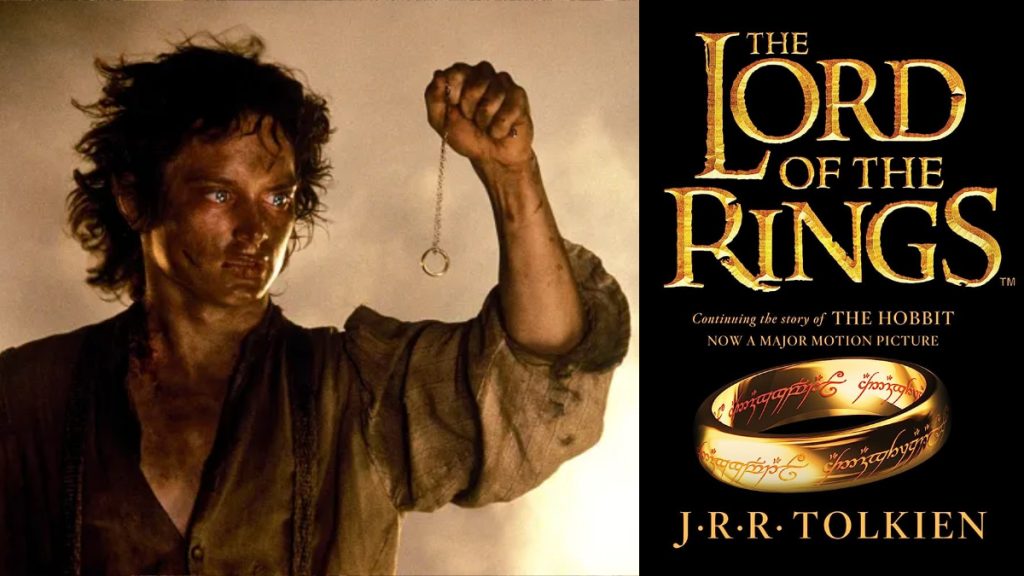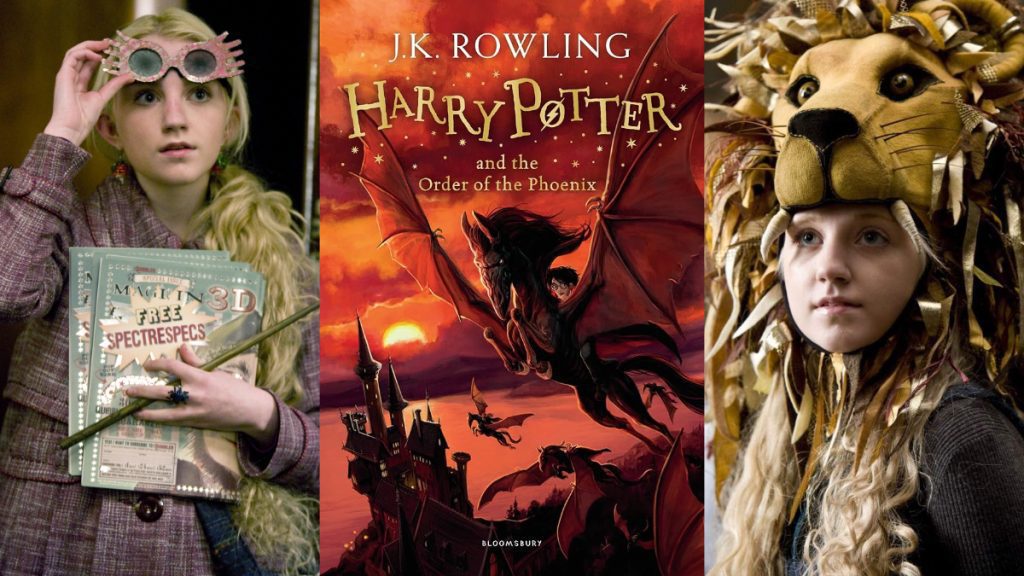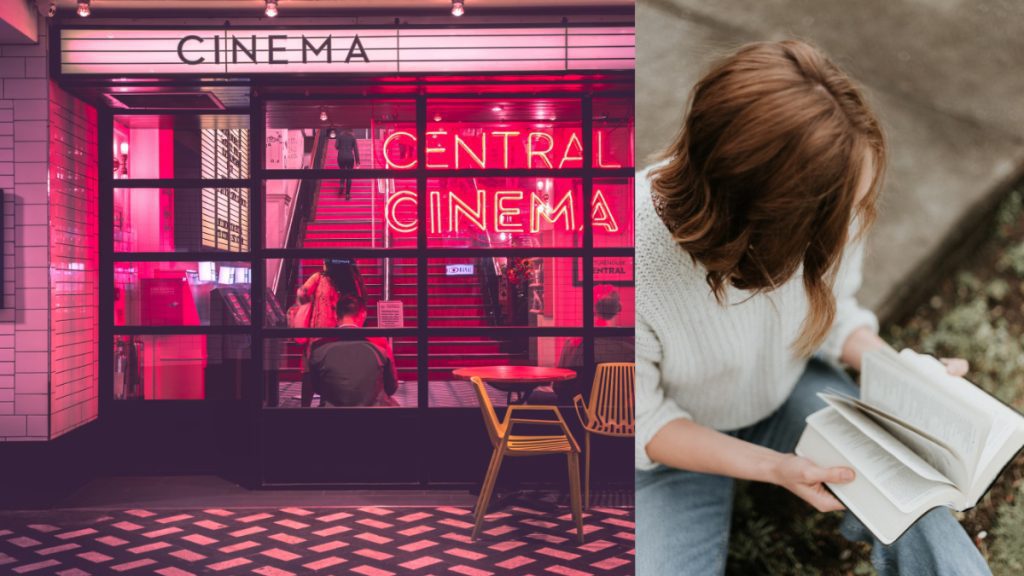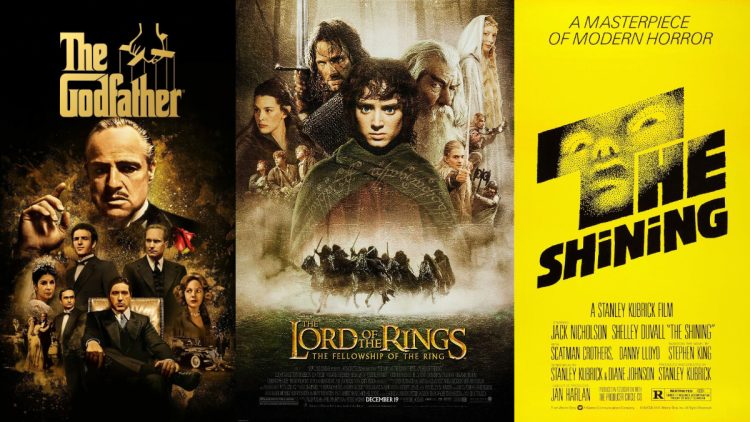There is nothing more exciting than finishing a page-turner to discover that it is being adapted into a film. On the contrary, nothing is more disappointing than a bad film adaptation of a beloved book, especially if you are a dedicated fan of the author or series.
It is quite uncommon in the eyes of avid readers that the adaptation reaches expectations, the general rule of thumb is the book is better. With this vibe looming around the book community, what qualifies as a good adaptation versus a bad one? If the book can (rarely) be better, what are the criteria to begin with?
While the criteria might change from fan to fan, or even depending on the storyline, here are some general points that make a good film adaptation, and may be helpful when deciding if you didn’t feel the book was represented, or if it just wasn’t a good book to be adapted. Not everyone wants to hear that, but sometimes a film that follows too closely just doesn’t translate properly to the screen. Check out what makes a good versus a bad film adaption.
How Closely The Script Matches The Plot

Many readers try to envision the plot and lift the words off the page, so naturally an element that makes a good adaptation is how well the script follows the plot. When the book comes before the film (as it usually does), it creates a troupe in readers’ minds for how things should playout, and in what order. When the film adaptation scambles things up, it strays from the original idea and can cause a red flag for readers awaiting a good adaptation.
Have you ever heard someone come out of a movie theater saying “That was nothing like the book”? That is an indicator of a bad adaptation because it lets down the fans who allow the film to be made in the first place.
It is important to distinguish here that a bad adaptation is not necessarily the same as a bad film, but in the eyes of the reading community sometimes a letdown doesn’t give the film a stand-alone chance.
A common example of a film adaptation that closely follows the plot is Harry Potter, especially when the production decided to split the seventh book into two films to really give the fans what they deserved. The Harry Potter community is full of tough critics, and even for a good adaptation, there have been a lot of complaints about missing scenes, and details and changing the order of events which demonstrates just how hard it is to get right even in the best scenarios.
Related5 Must-Watch Netflix Series You Didn’t Know Are Based On Books
How Well The Characters Are Portrayed

While plot and detail are vital to a good adaptation, how well the characters are portrayed is arguably the most important element of a good adaptation. On some level, fans can understand that the script may change from the book, or portray events in a slightly different order, but if the character development is off, the ruins the magic.
There is nothing worse than loving a book character and hating their on-screen counterpart. When the casting is off, or the portrayal just isn’t right, it can completely throw off your original image of the character, and hence the magic of the story. A bad adaptation fails to bring the characters to life in a way that agrees with their literary portrayal.
Let’s look at another Millennial cult classic to better understand this element, Edward and Bella from Twilight was a controversial portrayal in pop culture. Did fans love the casting? Of course. Did they love how angsty and awkward the characters were portrayed? Not as much. While the cult following is strong with the Twilight Saga, even die-hard fans who enjoy the films can admit the characters are not exactly like their literary counterparts, which tends to give the adaptations a bad rep.
When Fan Favorites Are Not Left Out

To get a gold star rating from book fans on the adaptation, the film has to include fan-favorite moments and details. This takes the element of how closely the book follows the plot to a deeper level that includes attention to detail. For example, when the scene is left out of the film that fans enjoyed in the book.
Related5 Best Rom-Coms You Didn´t Know Are Based On Books
This is also when a detail is changed, for example, the film taking place in a different city or a character having a different role or profession. These little changes may not always be important, but when done incorrectly it certainly takes away from the original vision and expectations that fans have for the adaptation.
Taking this back to the Harry Potter example, there are a ton of details and swaps made in the films that always made Potterheads leave the movie theater arguing about the changes.
What Makes The Final Difference?

So if Harry Potter and The Twilight Saga can still have such huge fan followings, even though they have not always stuck to the elements that make a good adaptation, what makes the final difference?
The final difference for a good adaptation will always lie in the eyes of the fan, there is a level of individual expectation or acceptance without a doubt. But even on the communal level, the adaptation has to capture the essence of the book. Essence is something that is not strictly about the plot, character development, or attention to detail, it simply needs to be adapted in a way that gives the book justice.
Likewise, a bad film adaptation lacks the essence captured by the book meaning it does not contain the magic. This can be due to bad editing; a lot of these elements can be drilled down the editing room (removing details, etc). But essence is also captured, just like in a book, from the beginning of the film process to the final product.
In the reading community, we can set as many criteria as we want, but in the end, essence is everything for determining a good or bad adaptation.












